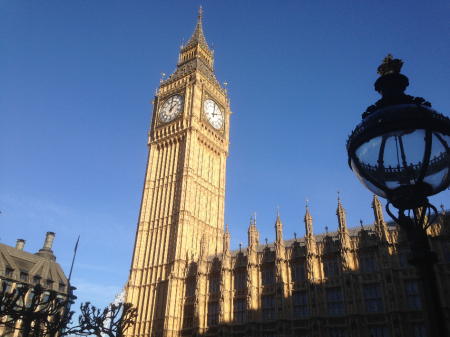 New research by WISERD Professors Paul Chaney, Ian Rees Jones and Ralph Fevre published by Oxford University Press and The Hansard Society, analyses a significant rise in animal welfare petitions submitted to the UK parliament over the past decade.
New research by WISERD Professors Paul Chaney, Ian Rees Jones and Ralph Fevre published by Oxford University Press and The Hansard Society, analyses a significant rise in animal welfare petitions submitted to the UK parliament over the past decade.
This analysis is part of the research project, New arenas for civic expansion: humans, animals, and Artificial Intelligence, in WISERD’s Civil Society research programme. This topic of enquiry matters because it reveals how Westminster’s e-petitions system (introduced in 2010), is providing new opportunities for civil society to engage in setting parliamentary business.
This blog post is the first in a two-part series, exploring how Westminster public petitions on animal welfare represent a new mode of civic engagement. I’ll provide a bit of background information on the e-petitions system, what the petitions tell us about the nature of civil society demands on animal welfare, and the multi-level governance ‘literacy’ of petitioners. By this, I mean how much members of the public know about which tiers of government are responsible for different policy issues.
In the next part of this blog series, I’ll explain what we’ve found out about how the government responds to the most popular (mass-support) petitions and what this means for the future of civil society.
The e-petitions system was developed in the early 2000s amidst concerns over of a growing democratic deficit and public dis-engagement with parliament. Measured in terms of engagement, e-petitions have proven to be a success. Approximately 31,000 petitions are submitted to Westminster each year, signed by over 11 million people. The Welsh and Scottish Parliaments have their own systems.
Recent public attitudes data reveal that in the UK, animal welfare is increasingly becoming a concern for many members of the public, particularly among younger generations. Despite this, until now, academic studies have overlooked the representation of non-human species in parliamentary business. Our study addresses this knowledge-gap and proposes that animal welfare is an example of ‘civic expansion’. In other words, it challenges the dominant view that civil society is solely concerned with associative life – sociability – between humans. Rather, it argues that it is about the co-existence and inter-dependence of humans and animals.
Over three parliaments (2010-19), 2,500 animal welfare petitions were submitted. They were signed by 5.7 million people. While animal welfare was not the subject of as many petitions as key policy areas like health and education, it nevertheless was the subject of more petitions than topics such as Brexit, immigration, transport, overseas/foreign aid, and waste recycling.
The most popular animal welfare petition topic, accounting for over a fifth of petitions, was calls for stricter general regulation of animal welfare (to be achieved by new laws, regulatory bodies and strengthened monitoring and enforcement measures). For example, ‘Give the RSPCA, Local Councils and Police more powers to tackle animal abuse’ and, ‘Increase maximum sentencing for animal cruelty from 6 months’ and ‘Introduce a register of people who are convicted of animal cruelty’.
The second most common topic was wildlife protection (15.2%). The demands were wide-ranging and included changes to the planning system (e.g., ‘reassess general aviation airfields as green belt not brown field sites’), restricting the use of damaging chemicals (e.g., ‘the use of pesticides in the domestic environment should be banned’) and preventing habitat loss (e.g., ‘Ban Chinese Lanterns’). Policy related to pets was the third most popular topic (14.7%).
Overall, the analysis shows that a high proportion of animal welfare petitions are rejected. In the 2017-19 parliament alone, two-thirds of animal welfare petitions were rejected by the Petitions Committee. In most cases, this was because there was already an existing petition on the same issue (60.4%). The other main rejection reasons were: it was not clear what the petition was asking for (25%), the subject of the petition was neither the responsibility of the UK government nor Parliament (13.5%), or the petition was created using a fake or incomplete name (1%).
Examination of the petitions rejected because they were not the responsibility of the UK government or Parliament, provides insight into the multi-level governance (MLG) ‘literacy’ of petitioners. In other words, the public’s understanding of which tiers of government are responsible for different policy issues. The analysis shows that this is a problem, and as a result, many petitions are misguided.
Almost a third (29%) of the animal welfare petitions submitted to Westminster were either the responsibility of local government (20.6%), the Scottish, Welsh, and Northern Irish governments and/or legislatures (6.5%), or the EU/EC (1.9%). Further MLG reasons included that they were the responsibility of: third or voluntary sector organisations, including charitable bodies (5.6%), e.g., ‘The Greyhound Board of Great Britain is responsible for regulating the welfare and care of all racing greyhounds’, private companies (19.6%), e.g., ‘This is the responsibility of social media companies’, or were international matters (8.4%), e.g., ‘The hunting of wild animals outside the UK is the responsibility of the government in that country’.
Read about mass-support e-petitions in the next blog post of this series, including how the government responds to these and what they suggest about the future of civil society.
Read the full study findings:
 Chaney, P., Rees Jones, I. and Fevre, R. (2021 forthcoming) Exploring the Substantive Representation of Non-humans in UK Parliamentary Business: A Legislative Functions Perspective of Animal Welfare Petitions, 2010-19, Parliamentary Affairs – A Journal of Representative Politics, Oxford University Press/ The Hansard Society, ISSN 0031-2290, EISSN 1460-2482
Chaney, P., Rees Jones, I. and Fevre, R. (2021 forthcoming) Exploring the Substantive Representation of Non-humans in UK Parliamentary Business: A Legislative Functions Perspective of Animal Welfare Petitions, 2010-19, Parliamentary Affairs – A Journal of Representative Politics, Oxford University Press/ The Hansard Society, ISSN 0031-2290, EISSN 1460-2482
Image credit: copyright Paul Chaney
